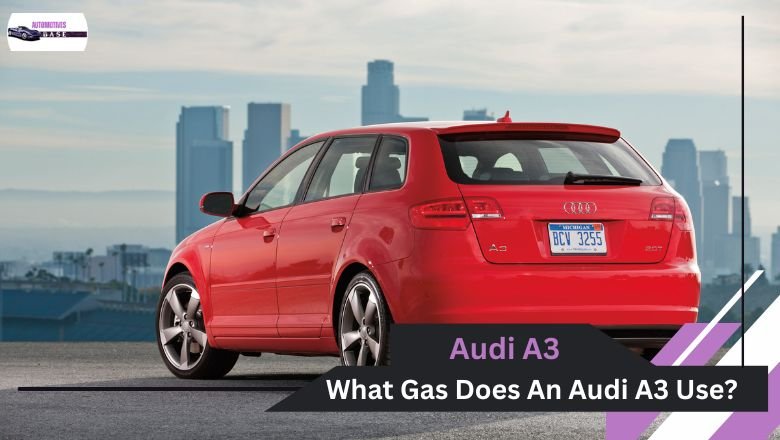Pondering the fuel type required for an Audi, what gas does an Audi A3 use? The age-old debate between regular and premium gas may have you scratching your head at the pump. Here we will delve into the world of fuel octane ratings to uncover whether your Audi A3 demands only the finest premium elixir or if it can thrive on the more budget-friendly regular option.
This article will navigate you through the nuances of this burning question and shed light on keeping your Audi A3 purring like a contented feline on a sunny afternoon drive.
What Gas Does An Audi A3 Use?
You have the option to use regular gas or premium gas when it comes to fueling your Audi A3. The good news is that using regular gas will not harm your vehicle in any way.
If you aim to get improved mileage and potentially lower long-term maintenance costs, it’s recommended to fill up with premium gas when possible. The Audi A3 is designed to run efficiently on both types of gasoline, so you can choose based on your preference and budget.
Audi models with a v8 v10 and w12 are designed to run on premium unleaded gasoline with an octane rating of 91 or higher.
| Category | Type | Is it OK? | Notes |
| Gas | Regular (87 octane) | ✓ | Minimum required octane level by Audi the car will run safely. |
| Gas | Mid-grade (89 octane) | ✓ | |
| Gas | Premium (91 octane) | ✓ | Recommended octane level by Audi, the engine will be more resistant to knocking. |
| Gas | Premium (93 octane) | ✓ | |
| Gas | Ethanol-based (E10) | ✓ | Same as the typical gas at most pumps. |
| Gas | Ethanol-based (E15) | ! | It’s not optimal for the car, but it won’t be a danger in the short term. It can only be used for Audi A3s from 2001 or newer. |
| Gas | Ethanol-based (E85) | ! | Mostly not OK. It can only be used if your A3 has a flex-fuel system. |
| Gas | Reformulated Gasoline (RFG) | ✓ | A type of gas that burns more cleanly, about 30% of the gas sold in the US is RFG. |
| Additives | Fuel injector cleaner | ! | Be careful; it can potentially damage the engine when overused. |
| Additives | Octane booster | ! | Be careful; it can damage the engine when misused. |
| Additives | Fuel stabilizer | ! | Be careful; it can damage the engine when misused. |
Does An Audi A3 Use Regular Or Premium Gas?
The official recommendation from Audi is to use regular gas when it comes to fueling an Audi A3, as it meets the minimum octane level required. Using premium gas is suggested for optimal performance.
It’s important to consider your driving habits and preferences when deciding which type of fuel to use in your Audi A3. Premium gas may offer better engine performance and fuel efficiency, but regular gas is sufficient for everyday driving.
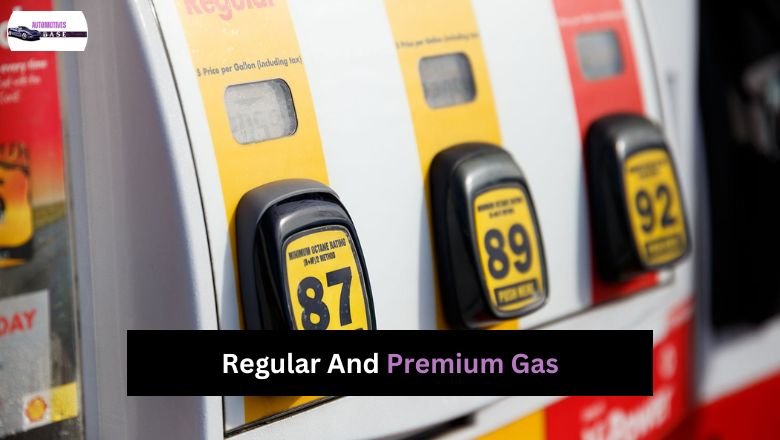
The Audi A3 is designed to run on regular gas with a minimum octane rating of 87. This is the required fuel quality to ensure safe operation and avoid potential damage to the engine or fuel system.
The use of higher-octane premium gas is recommended for optimal performance, but it is not necessary for the Audi A3. Choosing regular gas over premium will not harm the vehicle, making it a cost-effective option for owners. Always refer to the owner’s manual for specific fuel recommendations and guidelines related to your Audi A3 model.
Audi also makes a recommendation:
The Audi A3 is recommended to use premium gas for optimal performance. If you own a performance-focused version of the Audi A3, such as an A3 e-Tron, an A3/S3 with a turbocharged 2.0-liter petrol engine, or an RS3, using premium gas becomes even more crucial. By following this recommendation, you can ensure that your Audi functions at its best and potentially reduce long-term maintenance costs.
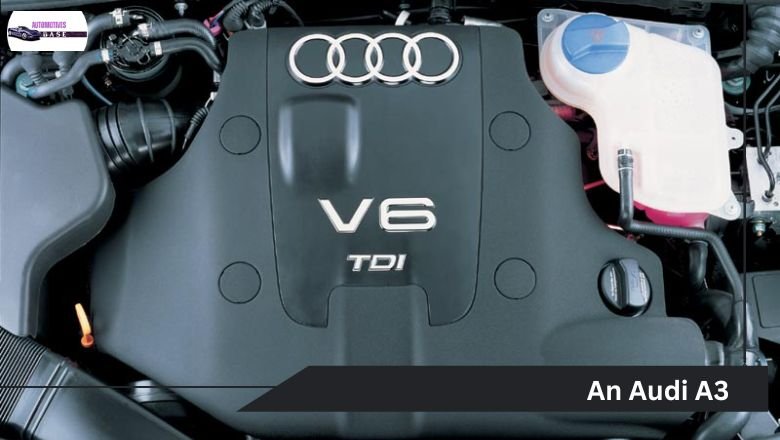
The Audi A3 uses premium gas due to its high compression ratios and direct injection technology. These features increase the likelihood of knocking, or premature combustion, with regular gas. Premium gas has a higher octane rating, which helps prevent knocking in performance-oriented engines.
This ensures optimal engine performance and efficiency for the Audi A3. Using regular gas may lead to decreased performance and potential damage to the engine.
What Is the Difference Between Regular and Premium Gas?
The difference between regular and premium gas lies in their octane ratings. Regular gas typically has an octane rating of 87, while premium gas can range from 91 to 93. This rating indicates the fuel’s resistance to premature ignition in the engine’s cylinder, also known as knocking.
Using a higher-octane premium gas is recommended for turbocharged engines or those with high compression ratios to reduce the risk of knocking and potentially improve fuel economy.
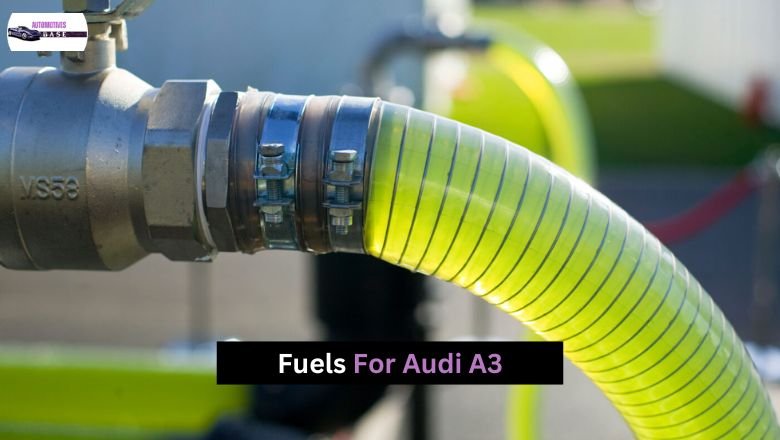
For Audi A3 owners, it’s essential to refer to the manufacturer’s recommendation for the optimal fuel type. Some Audi A3 models may benefit from using premium gas, while others may perform best with regular gas. If you’re unsure about which fuel type to use, consulting the owner’s manual or speaking with a trusted mechanic can provide clarity on what works best for your specific Audi A3 model.
Can You Use Ethanol-Based Fuels For The Audi A3?
Yes, the Audi A3 can use ethanol-based fuels. These fuels are made from renewable sources like biomass, which is a mixture of plant materials. In the US, most gasoline already contains ethanol.
The typical ethanol blend is E10, with 10% ethanol and 90% gasoline. While these fuels help reduce air pollution, high concentrations of ethanol in gas can potentially harm your vehicle.
Using E10 in your Audi A3 can be beneficial for the environment. It’s essential to check with your manufacturer to ensure compatibility with higher ethanol blends. It’s also recommended to follow the vehicle’s fuel recommendations for optimal performance and longevity.

E10 fuel, containing 10% ethanol and 90% gasoline, is widely considered safe for most cars on the road today, including the Audi A3.
In some areas, you may come across E15 gas with a higher ethanol content of 15%. E15 can be found at over 2,400 pumps in 30 states in the US; it is not ideal for the Audi A3, but won’t pose an immediate danger. It is recommended to only use E15 in Audi A3 models from 2001 or newer.
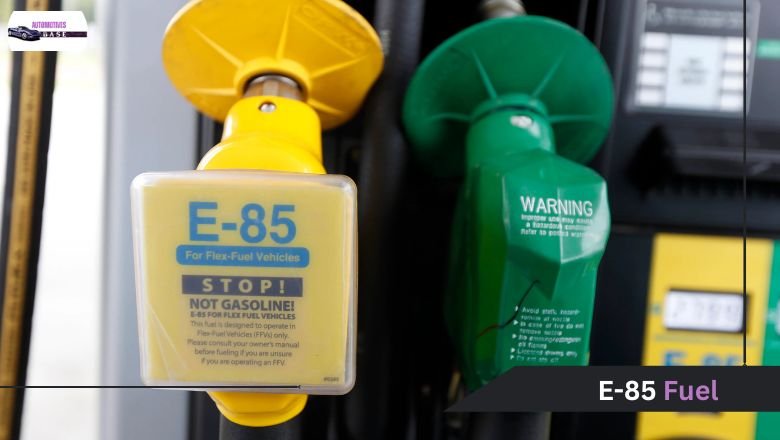
Using fuel with even higher ethanol content, such as E85, is not suitable for the Audi A3 unless a flex-fuel kit is installed. Optimal performance and longevity for your Audi A3 will be best achieved by sticking to the recommended fuel types.
Gas Requirements For Other Audi Models
Most of the Audi A3 models run on gasoline. The most common fuel choices are regular unleaded gasoline or premium unleaded gasoline, depending on the specific engine and trim level.
Audi A3 Gas Type
The Audi A3 requires premium unleaded gasoline with an octane rating of 91 or higher. Using lower octane fuel can damage the engine, impacting long-term quality and longevity.
2015 Audi A3 Gas Type
The 2015 Audi A3 offers gas and diesel engine choices. Gasoline options include a 1.8-liter and a more powerful 2.0-liter turbocharged engine. Both engines run on regular unleaded gas, providing a good balance of power and fuel efficiency suitable for daily driving or performance needs.
2023 Audi Gas Type
The 2023 Audi A3 will offer gasoline and diesel engines, with a focus on performance and innovation. Possible hybrid or electric options may be introduced to meet environmental demands. The car aims to provide diverse gas type choices for customers.
Audi A4 gas type
Drivers have the flexibility to choose between regular, mid-grade, or premium gas when it comes to the Audi A4. Regular gas is suitable for the Audi A4. Premium gas is recommended by Audi to enhance resistance against knocking. By opting for a higher octane level such as 91 or 93, drivers can potentially improve performance and fuel efficiency in their Audi A4.
Audi A5 gas type
The Audi A5 is a versatile model that offers flexibility when it comes to gas requirements. Drivers have the option to use regular (87 octane), mid-grade (89 octane), or premium (91–93 octane) gas.

The car is designed to be compatible with regular gas; opting for premium fuel is advised by Audi and many experts. This choice can help maximize the performance of the vehicle as well as prolong the engine’s lifespan.
Audi A6 gas type
The Audi A6 offers flexibility in gas options, allowing owners to choose between regular (87 octane), mid-grade (89 octane), or premium (91–93 octane) fuel.
The vehicle can run on regular gas without issue, and Audi and industry experts advise opting for premium fuel for optimal performance and longevity of the engine. Premium gas typically contains higher levels of additives, which can help clean the engine and improve overall efficiency.
Audi Q3 gas type
The Audi Q3, like other Audi models, offers flexibility when it comes to gas requirements. Drivers have the option to use regular (87 octane), mid-grade (89 octane), or premium (91–93 octane) gas in this vehicle. Regular gas is suitable for everyday driving; using premium gas is often recommended by Audi and experts for optimal performance and longevity of the engine.
Audi Q5 gas type
The Audi Q5 is a versatile vehicle that offers flexibility in terms of gas options. It can operate on regular, mid-grade, or premium gasoline, providing drivers with choices based on their budget and performance preferences.
The use of regular gas is deemed safe for the Q5, but many experts suggest opting for premium fuel to enhance performance and extend the engine’s longevity. The higher octane levels present in premium gas can optimize the Q5’s overall efficiency and power output.
Audi Q7 gas type
The Audi Q7 offers flexibility in gas options, allowing drivers to choose between regular (87 octane), mid-grade (89 octane), or premium (91-93 octane) fuel. Regular gas is deemed safe for use in the Q7, but Audi and many experts suggest opting for premium gas to enhance performance and extend the engine’s longevity.
The higher octane rating of premium fuel helps minimize engine knocking and maintain optimal combustion efficiency. By using premium gas, drivers can enjoy smoother acceleration and potentially better fuel economy.
Audi VS Toyota 4Runner
Audi delivers a refined driving experience with luxury features, cutting-edge technology, and sporty performance. It’s ideal if you value a premium feel and advanced engineering. Toyota, particularly models like the 4Runner, emphasizes reliability, durability, and practicality. Toyota vehicles like Toyota 4Runner generally offer better value for money and lower long-term costs. If you are seeking a high-end driving experience and don’t mind a higher price tag, Audi is a great choice. If you prioritize dependability and cost-effectiveness, Toyota stands out as a reliable option.
Conclusion
In the debate of what gas does an Audi A3 use? The Audi A3 does not explicitly require premium gas according to the manufacturer’s recommendations; using it may improve performance and fuel efficiency. Although using regular gas is acceptable, drivers may experience better results with premium fuel in terms of engine responsiveness and overall driving experience.
The decision to use premium gas in an Audi A3 depends on personal preference, budget considerations, and desired performance levels. It is recommended that drivers experiment with both types of fuel to determine which option best suits their needs and preferences.
FAQ`s
What Happens If I Put Regular Gas in My Audi A3?
Putting regular gas in your Audi A3 won’t cause any immediate issues. The Audi A3 is engineered to run smoothly on regular fuel without damaging the engine. Using premium gasoline is recommended for optimal performance and fuel efficiency.
What Is Audi A3 Fuel Type?
The Audi A3 is available with a variety of fuel types, depending on the specific model and year. The most common fuel type for the Audi A3 is gasoline, with options for both regular unleaded and premium gasoline.Some models of the Audi A3 are available with diesel engines, offering improved fuel efficiency and torque.
What Gas Does Audi A3 Take?
The Audi A3 typically runs on gasoline, which is the most common fuel type for this model. Some versions of the Audi A3 are also available with a diesel engine option. It is important to check the specific model and year of your Audi A3 to determine the exact type of fuel it requires.

